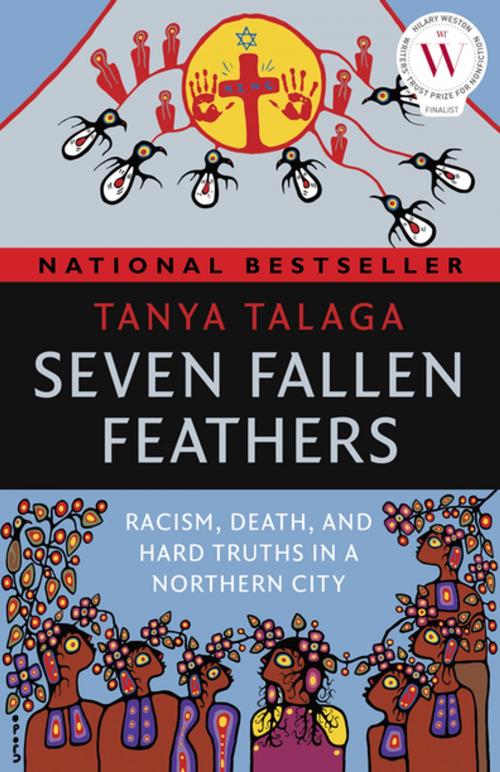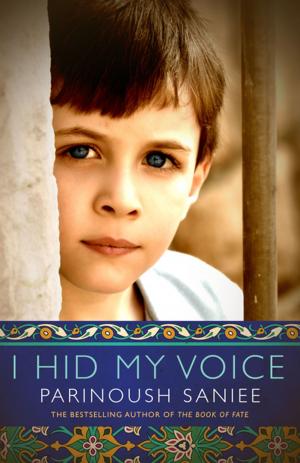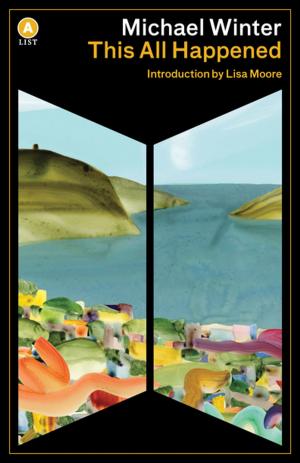Seven Fallen Feathers
Racism, Death, and Hard Truths in a Northern City
Nonfiction, Social & Cultural Studies, Social Science, Cultural Studies, Political Science, Biography & Memoir| Author: | Tanya Talaga | ISBN: | 9781487002275 |
| Publisher: | House of Anansi Press Inc | Publication: | September 30, 2017 |
| Imprint: | House of Anansi Press | Language: | English |
| Author: | Tanya Talaga |
| ISBN: | 9781487002275 |
| Publisher: | House of Anansi Press Inc |
| Publication: | September 30, 2017 |
| Imprint: | House of Anansi Press |
| Language: | English |
Winner, 2018 RBC Taylor Prize
Winner, 2017 Shaughnessy Cohen Prize for Political Writing
Winner, First Nation Communities Read Indigenous Literature Award
Finalist, 2017 Hilary Weston Writers’ Trust Prize for Nonfiction
Finalist, 2017 Speaker’s Book Award
Finalist, 2018 B.C. National Award for Canadian Non-Fiction
A Globe And Mail Top 100 Book
A National Post 99 Best Book Of The Year
In 1966, twelve-year-old Chanie Wenjack froze to death on the railway tracks after running away from residential school. An inquest was called and four recommendations were made to prevent another tragedy. None of those recommendations were applied.
More than a quarter of a century later, from 2000 to 2011, seven Indigenous high school students died in Thunder Bay, Ontario. The seven were hundreds of miles away from their families, forced to leave home and live in a foreign and unwelcoming city. Five were found dead in the rivers surrounding Lake Superior, below a sacred Indigenous site. Jordan Wabasse, a gentle boy and star hockey player, disappeared into the minus twenty degrees Celsius night. The body of celebrated artist Norval Morrisseau’s grandson, Kyle, was pulled from a river, as was Curran Strang’s. Robyn Harper died in her boarding-house hallway and Paul Panacheese inexplicably collapsed on his kitchen floor. Reggie Bushie’s death finally prompted an inquest, seven years after the discovery of Jethro Anderson, the first boy whose body was found in the water.
Using a sweeping narrative focusing on the lives of the students, award-winning investigative journalist Tanya Talaga delves into the history of this small northern city that has come to manifest Canada’s long struggle with human rights violations against Indigenous communities.
Winner, 2018 RBC Taylor Prize
Winner, 2017 Shaughnessy Cohen Prize for Political Writing
Winner, First Nation Communities Read Indigenous Literature Award
Finalist, 2017 Hilary Weston Writers’ Trust Prize for Nonfiction
Finalist, 2017 Speaker’s Book Award
Finalist, 2018 B.C. National Award for Canadian Non-Fiction
A Globe And Mail Top 100 Book
A National Post 99 Best Book Of The Year
In 1966, twelve-year-old Chanie Wenjack froze to death on the railway tracks after running away from residential school. An inquest was called and four recommendations were made to prevent another tragedy. None of those recommendations were applied.
More than a quarter of a century later, from 2000 to 2011, seven Indigenous high school students died in Thunder Bay, Ontario. The seven were hundreds of miles away from their families, forced to leave home and live in a foreign and unwelcoming city. Five were found dead in the rivers surrounding Lake Superior, below a sacred Indigenous site. Jordan Wabasse, a gentle boy and star hockey player, disappeared into the minus twenty degrees Celsius night. The body of celebrated artist Norval Morrisseau’s grandson, Kyle, was pulled from a river, as was Curran Strang’s. Robyn Harper died in her boarding-house hallway and Paul Panacheese inexplicably collapsed on his kitchen floor. Reggie Bushie’s death finally prompted an inquest, seven years after the discovery of Jethro Anderson, the first boy whose body was found in the water.
Using a sweeping narrative focusing on the lives of the students, award-winning investigative journalist Tanya Talaga delves into the history of this small northern city that has come to manifest Canada’s long struggle with human rights violations against Indigenous communities.















